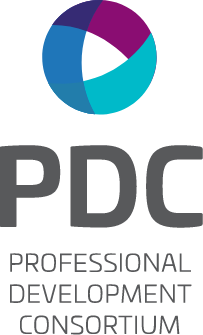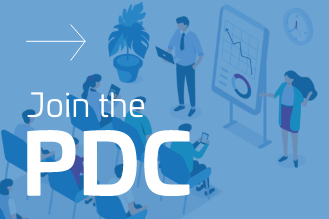You are here
Considering The Impact of Identity in Legal Professional Development
January 17, 2024
Author: Jackie Cranford
Founder and Principal
Cranford Advisory Services LLC
In the words of The Rolling Stones, “please allow me to introduce myself.” I am a Professional Development Consortium (PDC) Trusted Advisor, a former Big Law litigator, a former DOJ trial attorney, and a talent management professional committed to enhancing diversity, equity, inclusion, and belonging (DEIB). Of course, all of this one can read in my biography. I am so much more than my curriculum vitae and much more than meets the eye!
Who am I? I am a wife, a working mother, an “army brat,” a Black woman born in Texas in the 60s to Black parents raised in the Jim Crow South, a shy child who moved often throughout childhood (around the United States and abroad), and a child of divorce who experienced poverty. I am a Black woman who spent her formative years fellowshipping in an almost exclusively White Evangelical church and a mother of two Black children, one of whom is nonbinary and manages severe anxiety and depression and one of whom recently received an ADHD diagnosis. These are just some aspects of who I am. Like you, I am complex, and it is the complexities of our experiences and identities that shape us and how we navigate the world. I challenge you to consider what impacts your identities and experiences have on you, your work, and how you present yourself, particularly as someone navigating the evolving world of legal professional development.
I encourage you to take a holistic approach that transcends the conventional focus on credentials and qualifications. Recently, I was listening to cultural commentator, Trevor Noah, and I was reminded of the importance of embracing our entire selves, not just our professional personas. While we all have many cultural identities, we often reveal only certain aspects of identity in professional environments. Many of us feel pressure to hide or minimize other aspects of our identities, a taxing exercise that disproportionately impacts those already marginalized. Having had the privilege of focusing my career on diversity, equity, inclusion, and belonging over the last two decades, I have embraced the freedom of discussing my identities in ways I never dreamed possible (or practicable) early in my legal career. I talk about the impact of those identities and experiences to raise awareness about difference and the difference it makes. Consider the impact of sharing some aspects of who you are beyond your resume and making space for others to do the same. It has taken time for me to get to the level of vulnerability demonstrated in this article – it is a process, and it is impactful.
Reflecting on issues of identity, culture, belonging, etc., has been a lifelong journey for me as it may have been for some of you, with different identities in the spotlight at various points. For example, when I moved to the Washington, DC, area after graduating from Oral Roberts University, I encountered (and continue to encounter) many questions about my rationale for choosing to attend a predominantly White Christian university. Subsequently, I matriculated to the University of Virginia Law School – one of only a few students from my undergraduate institution to attend UVA’s law school at that time. In what I now consider to be the bubble in which I was raised, I never could have imagined or anticipated the incredulous questions and curiosity directed at me! These repetitive experiences of being treated as “other” and questioned about my decisions and credentials inform my work and how I introduce myself, particularly in the legal profession. I consider it a privilege and responsibility to challenge those of us in the legal profession to resist the inclination to focus only on our professional accomplishments.
How has your personal journey navigating societal challenges profoundly shaped you and your approach to professional development, particularly in terms of DEIB? My 20-year marriage has served as a rich source of learning and inspiration. The complexities and nuances of a long-term relationship with a person with whom I share some significant cultural similarities (but not all) have provided invaluable lessons about, among other things, communicating across difference and conflict resolution. These lessons are directly applicable to professional environments, especially when navigating differences and fostering cohesive team dynamics.
Integrating our personal identities with our professional strategies can lead to more effective and empathetic leadership. By acknowledging and valuing the totality of our experiences and perspectives, we can develop more inclusive and dynamic professional environments. This approach not only enhances our ability to navigate the complexities of our work environments, but also enriches the quality of our contributions to legal professional development.
About the Author: Jacqueline Cranford, founder and principal of Cranford Advisory Services LLC, is a seasoned professional with over 30 years of legal industry experience. Renowned for her expertise in talent management, Ms. Cranford is a dynamic trainer, sought-after speaker, and a leader committed to excellence and integrity with a demonstrated record of success in leading talent management initiatives at top law firms. She partners with clients to develop strategies encompassing professional development, diversity, equity, inclusion, and belonging. Ms. Cranford earned her law degree from the University of Virginia School of Law and prior to focusing her career on talent management, she practiced as a litigator in both the private and public sectors.


